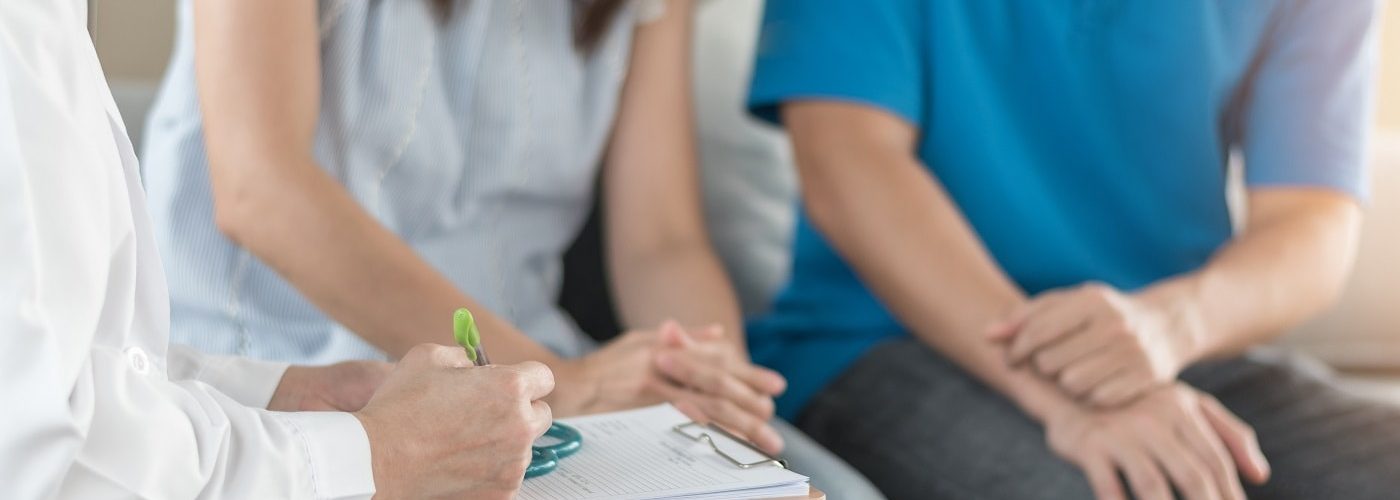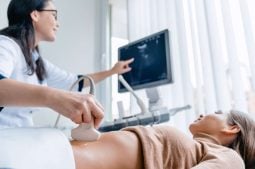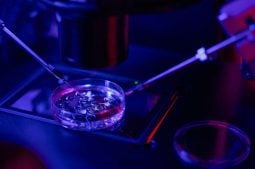
Your first visit to the IVI clinic is an important step on the journey you started when you began to suspect that you might need help in fulfilling your dream of becoming a parent. We want to make sure that the experience is as relaxed and positive as possible. So here is a brief outline of what you can expect. In about 30% of cases, infertility is attributable to the male partner. Similarly, in 30% of case it is attributed to the woman. In about 20% of cases, it is attributable to both partners, leaving some 20% of cases where the cause is not identified.
You will already have been in contact with the clinic to give us some basic information: whether you have visited an IVI clinic before, what treatment, if any, you have already undergone, and so on. During that initial call, you will already have chosen the clinic you want to visit and decided on the dates that suit you best. Our clinics in Valencia, Alicante, Madrid and Barcelona all have International department.
When you arrive at the clinic, someone from our patient care department will meet you at reception. They will go through the registration process with you and create your patient file.
Once this paperwork is completed, you will be taken for a medical consultation with a gynaecologist and a nurse. The doctor will ask you about your medical history regarding fertility (for example, how long you have been trying to have a baby, whether you have been pregnant before and so on). You will also be asked if you have had any medical tests before and are willing to share the results.
Your gynaecologist may ask if you are will to have a vaginal ultrasound and a transfer test to verify access to the uterus. If you agree, this can be done during this initial consultation. The doctor will then share their diagnosis with you and tell you about any further tests you need to take.
After that, you will be taken back to the patient care office where you will be given an estimate together with information and documentation about the centre. If you wish, you can book your next appointment there and then.
The tests required to get an accurate diagnosis may include the following:
- Both partners: Clinical history and physical examination.
- Women: Baseline hormonal study, ultrasound and hysterosalpingography (HSG) (more tests may be required depending on the problems identified).
- Baseline hormonal study: a blood test at the beginning of the ovulation cycle that evaluates, among other things, the LH (luteinizing hormone), FSH (follicle stimulating hormone), progesterone and estradiol hormone levels, which can help clarify the state of ovarian reserves.
- Ultrasound: a scan that provides images which can reveal possible ovulation problems.
- Hysterosalpingography (HSG): a radiological test performed at the end of the ovulation cycle that enables the doctor to evaluate whether there are problems with the uterine cavity or the fallopian tubes.
- For men: a spermiogram. This looks at the concentration of sperm as well as its mobility and morphology to detect any potential issues. Even if this test has been conducted before, it will be performed again at IVI because the result can vary depending on the procedure used to analyse the sample. You should ensure that you do not have sex for the three to five days before the spermiogram is carried out.





Comments are closed here.